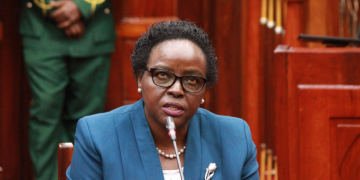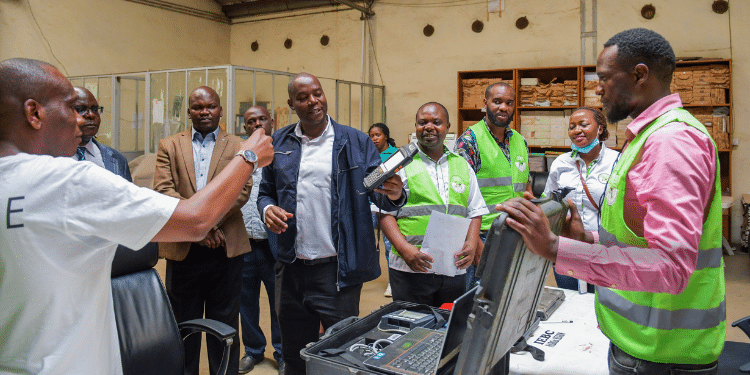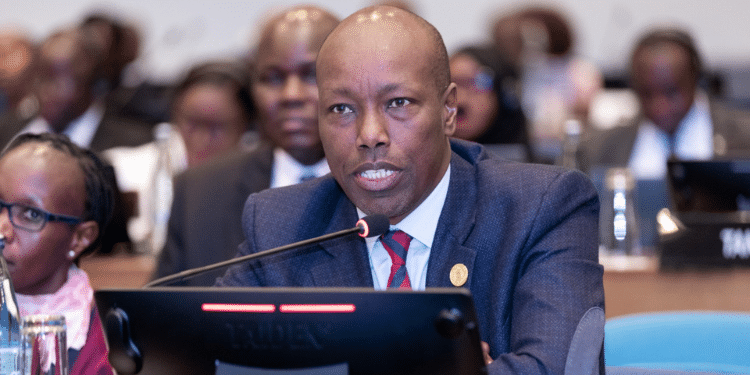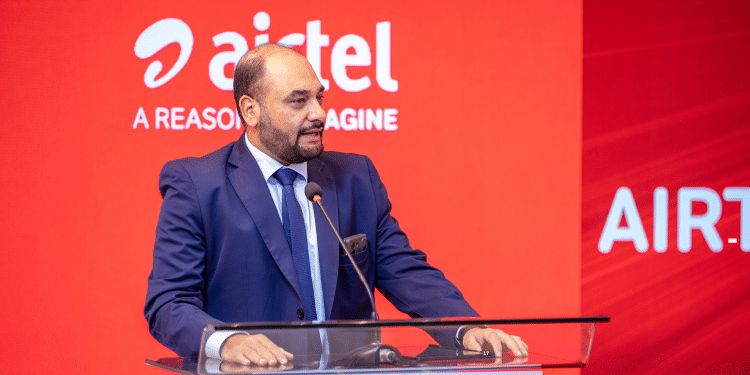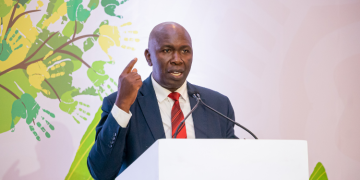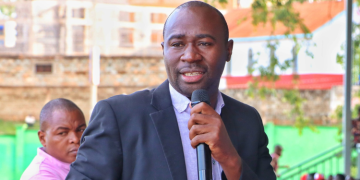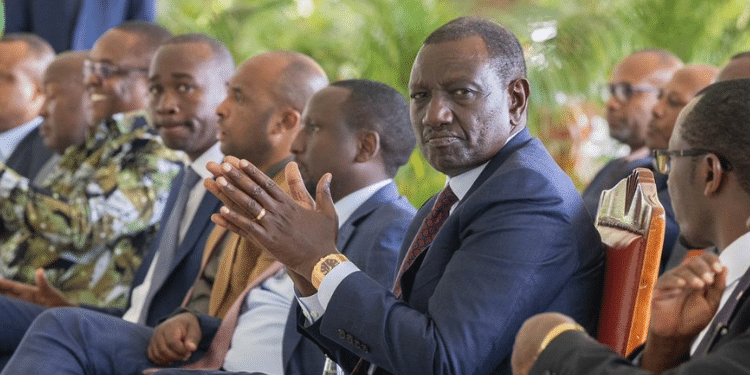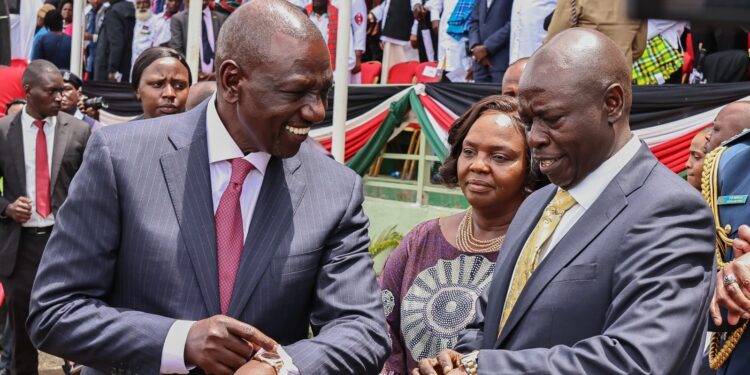Kenya’s political landscape has seen its fair share of turbulence, with politicians at the center of controversies often facing tough decisions about their futures. Rigathi Gachagua, Kenya’s Deputy President, has recently found himself in a precarious position, where the calls for accountability are growing louder. As pressure mounts, questions arise: Should he apologize, resign, or brace himself for the potential of impeachment?
Understanding the Current Situation
Rigathi Gachagua has been a polarizing figure since taking office, with accusations ranging from mismanagement of public funds to insensitive public remarks.
His critics argue that he has failed to provide the leadership expected of a deputy president, tarnishing the image of the government.
On the other hand, his supporters claim that he is a victim of political witch-hunts and is being unfairly targeted by those who seek to remove him from office for standing with the ‘Mrima’.
Amid these mounting pressures, Gachagua faces three possible paths: issuing a public apology, stepping down from his position, or risking impeachment.
Each option carries significant political implications, not just for him but also for the stability of the ruling administration.

Gachagua Apologizing: The Easiest, But Is It Enough?
Public apologies have been a traditional tool in the playbook of politicians caught in controversy. They offer a way to pacify public outrage, signal accountability, and sometimes provide a pathway to reconciliation.
A genuine apology from Gachagua could temper the anger of his critics, showing humility and willingness to correct perceived wrongdoings.
Also Read: Gachagua is Under Siege: Why the Brewing Storm Could Finish Him
However, the real question is whether an apology would be sufficient. If his transgressions are primarily rhetorical or symbolic, an apology could suffice.
Yet, if the accusations extend beyond that—such as allegations of corruption or misconduct—mere words may not be enough to satisfy the public’s demands.
Without concrete actions to follow, an apology might even be viewed as disingenuous, giving more ammunition to those calling for his resignation or impeachment.
His attempt to apologize to the president, members of parliament, and the public on Sunday was emotional but conditional.
He started with the word “if”…’ If I wronged, you please find it in your heart to forgive me.” This was like throwing a partial responsibility back on the offended persons. I doubt the offended would accept Gachagua’s apology though he looked remorseful.
Resigning: The Noble Option, But Is It Likely?
Resignation is often considered the honorable route for public officials who find themselves embroiled in scandals.
It allows them to step aside with some semblance of dignity, preserving their legacy and preventing further damage to their political party or the government.
By resigning, Gachagua could spare himself the indignity of a drawn-out impeachment process and avoid becoming a further distraction to the administration.
Yet, resignation comes with heavy political costs. For someone like Gachagua, whose political brand is built on defiance and resilience, stepping down might be seen as a sign of weakness.
It could also have repercussions for his political allies, particularly President William Ruto, who could be left with the challenging task of replacing a deputy under pressure.
Additionally, Gachagua’s core supporters may view his resignation as capitulation to political enemies, weakening his base ahead of future elections.
Moreover, resignation is highly unlikely given Gachagua’s personality and political stance. He has shown a combative approach to his critics and seems unwilling to give in to pressure.
His resignation would therefore be an unexpected and monumental shift in the current political dynamic.
Impeachment: A Political Gamble
The final and most drastic option is impeachment. Calls for Gachagua’s impeachment have been growing, particularly from members of parliament and a section of the public.
The process has already begun in the National Assembly where a motion has been successfully tabled with eleven charges leveled against him. This is expected to culminate in a fierce trial at the Senate.
However, impeachment is a double-edged sword. On one hand, it allows Gachagua’s detractors to hold him accountable through formal, legal, and political channels.
On the other hand, it risks deepening political polarization and turning Gachagua into a martyr figure. The impeachment process could become a protracted political battle, further destabilizing the country’s governance.
It could also embolden his supporters, painting him as a victim of political persecution and mobilizing sympathy votes.
Also Read: Is a Snap Election an Option for Kenyans to Send Ruto Home Early? [EXPLAINER]
Additionally, impeachment is not guaranteed to succeed given that Gachagua has considerable influence in the Mount Kenya region.
Securing the necessary impeachment votes, particularly from the Mrima Members of Parliament will be a formidable task for his opponents because of the obvious political consequences come 2027.
If an impeachment attempt were to fail, it could backfire, strengthening his political standing and emboldening his defiance.
Political Implications for the Country
The decision Gachagua ultimately makes—whether to publicly and genuinely apologize, resign, or face impeachment—will have far-reaching consequences for Kenya.
A resignation or impeachment would be a significant blow to his Mrima support base, which could lose the influence of their leader in government at a crucial time.
Gachagua’s political opponents would likely capitalize on the situation, framing it as evidence of governmental instability.
Moreover, this scenario would set a precedent for accountability in Kenyan politics. Should Gachagua resign or be impeached, it would signal that no leader is above the law, reinforcing the importance of integrity in public office.
However, if he refuses to step down and is not impeached, it could embolden other leaders to defy public criticism, potentially leading to a culture of impunity.
Finally, Rigathi Gachagua is at a crossroads, and each option before him carries significant political risks and rewards. Apologizing may offer a temporary reprieve but might not address deeper issues.
Resigning could be seen as noble but unlikely given his abrasive political style and ambitions. Impeachment, while legally possible, could escalate into a broader political conflict.
Ultimately, the course Gachagua chooses in the next few days will depend on how he balances personal ambition, political loyalty, and public accountability.
For now, the country watches closely, aware that his next steps could reshape the political future of Kenya.
Follow our WhatsApp Channel for real-time news updates:
https://whatsapp.com/channel/0029VaB3k54HltYFiQ1f2i2C





